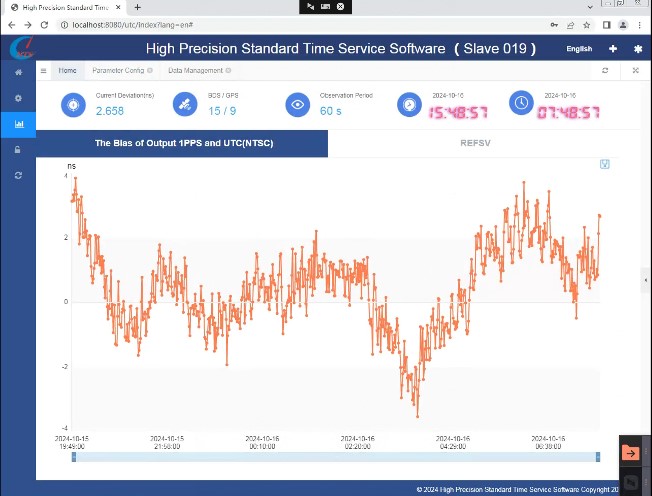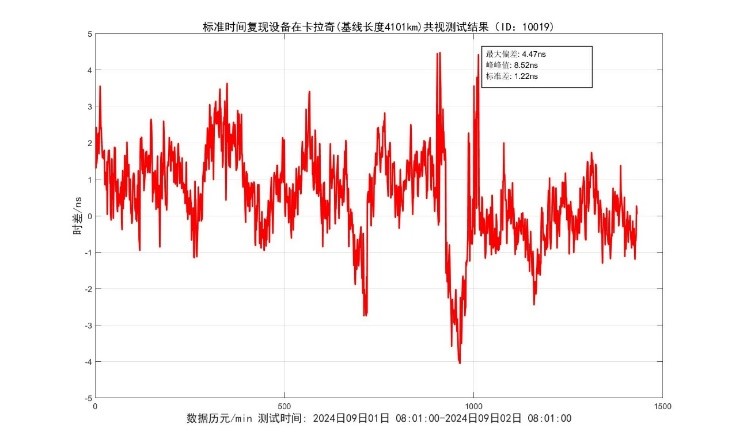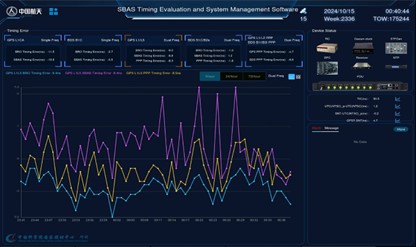Developed by the research team of the department of Time and Frequency Measurement and Control, the National Time Service Center (NTSC)of the Chinese Academy of Sciences, the "Pakistan MM1 Project Satellite-based Augmentation System (SBAS) timing subsystem " passed the test in January this year, and began to provide stable service in Pakistan in August after two years of development.
The timing subsystem is one of the six subsystems of the Pakistan SBAS (PaK-SBAS), which is responsible for establishing the system time of the Pak-SBAS, providing continuous and stable time and frequency reference signals for the data processing center. The subsystem also can monitor and evaluate the timing accuracy in real time with Coordinated Universal Time kept by National Time Service Center(UTC(NTSC)) as a reference for BDS/GPS broadcasting timing, SBAS single-frequency Augmentation timing and dual-frequency Augmentation timing, PPP-B2b authorized Augmentation timing service. Moreover, it can manage and monitor all the equipment of the timing subsystem, and it has realized unattended automatic operation at present.
The project not only provides Pakistan with technical assistance on satellite navigation, but also transfer UTC (NTSC) to Pakistan and realizes overseas replication of UTC (NTSC) within 5-ns at the 4000-km baseline. In addition, the project extends the existing GNSS broadcast time monitoring and evaluation technology of the NTSC with Pak-SBAS single-frequency, dual-frequency and PPP-B2b Augmentation timing monitoring and evaluation, which can be further applied to other GNSS systems.


The time offset monitoring and performance analysis interfaces for replicated UTC(NTSC) time signal in Pakistan (Image by NTSC)

Pak-SBAS timing subsystem login interface (Image by NTSC)

Pak-SBAS Augmentation timing monitoring software interface (Image by NTSC)
 Print
Print